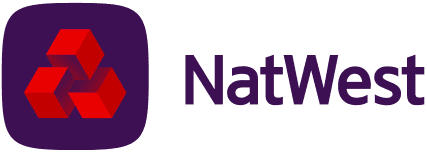Choosing a Business Loan in Northern Ireland
Securing the right finance is a key step for any business, big or small. In Northern Ireland, a range of business loan and financing options are available, but knowing which one is the best fit can be tricky. Small to medium-sized businesses (SMEs) often have different needs than larger corporations, so it’s important to understand the landscape to make an informed decision.
Types of Business Loans and Finance
The term “business loan” is a broad one, and it’s helpful to look at the different forms of finance on offer. For SMEs, traditional term loans are a common choice. This is where you get a lump sum and pay it back over an agreed period with interest. Other options are business overdrafts and business credit cards, which are flexible ways to manage short-term borrowing needs such as cash flow or unexpected costs.
For businesses looking to acquire new equipment, machinery or vehicles, asset finance is a great solution and this can be in the form of hire purchase or leasing. Another way to improve cash flow is with invoice finance, where a lender gives you a percentage of your capital tied up in outstanding invoices.
Larger businesses might also consider these options, but their needs can be more complex. They might explore more substantial financing for major expansion projects or international trade.
Government-Backed Schemes and Support
In Northern Ireland, there is government support available to help businesses access finance. The Growth Guarantee Scheme is one such programme, which is designed to improve the terms on offer for small businesses with a turnover of up to £45 million. The scheme provides lenders with a government-backed guarantee on the loan, which can make it easier for businesses to get the finance they need.
There are also specific funds aimed at supporting Northern Irish businesses. For instance, the NI Small Business Loan Fund provides loans for a range of purposes including start-up costs, working capital and expansion. These types of initiatives are especially important for start-ups and SMEs who may have difficulty securing mainstream finance.
The Loan Application Process
Applying for a business loan involves more than just filling out a form. To give your application the best chance of success, it’s wise to have a solid business plan, information of the plans for the loan funds and a clear strategy of repayment.
Lenders will also want to review your business’s financial health, which includes your credit report and recent financial statements to show cashflow and affordability. Getting your finances up to date and ready for the application is important, but whilst this might all sound daunting, once you make sure you have all your business information ready, the rest is relatively simple.
Businesses have a number of options when it comes to obtaining loans. Lending for businesses has evolved to offer products that fit very specific aspects of business operations. Whilst traditional style loans very much have a place in a businesses borrowing strategy, it’s important to understand that there are often multiple products available that can either save your business money, or work much more efficiently.
Business Loans in Northern Ireland FAQs
Is it easier to get a business loan for an established business or a start-up?
Lenders will assess each application on its own merit, but established businesses with a proven track record may find it easier to secure a loan and will certainly have more options available to them. It really depends on the type, size and applicant profile of how easy an application is. Additionally though, there are specific schemes, like the NI Small Business Loan Fund and Start Up Loans, designed to support new businesses that are still in their early stages.
What’s the difference between a secured and unsecured loan?
A secured loan requires you to provide an asset as security, such as property or equipment which the lender can take if you fail to make repayments. An unsecured loan doesn’t require any security, which can make it a quicker process but may have higher interest rates as a result.
Do I need a business current account with a lender to apply for a loan?
No. Your business account provider may offer loans, specifically for its existing customers however, most lenders also offer loans available to non customers. Other lenders do not operate business accounts at all, and operate on a loan only basis for all its customers.
Can I get a loan if my business has been trading for less than two years?
Yes, there are options for newer businesses. The type, size and business profile will determine which ones are accessible for newer businesses, but there are also schemes like the Start Up Loan programme delivered by Enterprise NI, which are specifically for businesses that have been trading for less than 36 months. The NI Small Business Loan Fund also offers loans for start-ups.
How will a loan application affect my credit score?
Many lenders offer a way to check for an indicative quote without affecting your credit score. A full credit check, which does happen during the official application, can impact your score. Multiple loan applications or declines will have a detrimental effect on your businesses credit score so make sure you only apply for loans after researching the best fit for your business.

